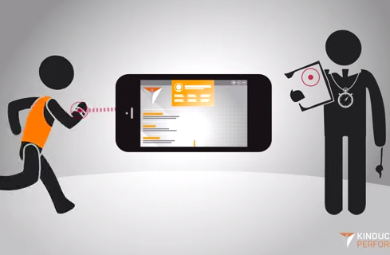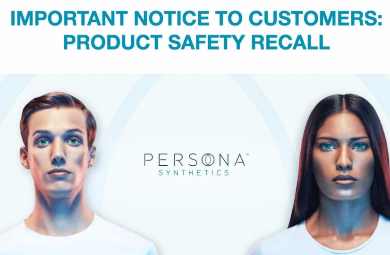
Tesco Mobile and BBH London use humour to showcase the network’s connectivity
‘It Pays to be Connected’ reaches consumers with relatable circumstances
The Rise of the Centaur


We’re in the midst of a revolution. An Artificial Intelligence revolution. One that will take away mundane and formal jobs, leaving us with more time for innovation and creativity. It all sounds great. But just how much of our daily lives are we really ready to hand over to AI?
For years machines have been helping us with tasks where accuracy and efficiency is required. Jobs such as financial analysis, engineering and even flying. Machines process the data to help humans make the right decisions. The future however, is an even greater collaboration between man and machine. This is known as the Centaur.
The Centaur takes the best attributes to form the perfect partnership. Machines are better at formulating answers, whereas humans are better at asking questions. The very best medical teams in the world are human doctors, powered by IBM Watson. Doctors will carry out a diagnosis, with the support of AI technology.
IBM Watson is a technology platform that uses natural language processing and machine learning to reveal insights from large amounts of unstructured data. The ubiquity of the smartphone means were all emitting huge amounts of data every day. Information we’re happy to exchange for personalised and useful services. For many the systems we connect to through our smartphones have become an extension of our personality. Giving machines access to that level of personal data opens up endless possibilities.
In April, North Face launched an app in collaboration with IBM Watson. The new service enables online visitors to have a real-time question and answer conversation with a virtual shopping assistant. North Face has 350 jackets, with different weights, styles, and protection levels; this new app helps customers figure out exactly what they need, saving them from the usual online shopping experience of scrolling through pages of images.
It’s interesting to see the impact AI is having on traditional business models.
Maple is an AI powered delivery-only restaurant based in New York. From delivery routes to menu planning, the system ensures the restaurant runs as efficiently as possible. It forecasts how many ingredients to buy and tells the chefs what to cook and when. It even knows which dish will be popular at different times of the day, and during different weather conditions.
AI can help businesses forecast and plan much more accurately, helping to keep waste to a minimum. Small changes can make a huge difference when scaled up, and can have a massive impact on the wider economy and environment.
“You have to understand that this is going to affect individual careers, individual tasks, individual jobs, the whole ecosystem of commerce because I think you can take whatever X you want, and you can add AI technology to it. That’s the formula for the next 10,000 start-ups.” Said Kevin Kelly, Founder of Wired magazine. “It’s just find something that we previously electrified, and that we’re going to cognify. We’re going to add intelligence, smartness to it.”
AI is getting smarter. It’s estimated by 2026 Google will be an AI company, and Facebook is using AI to train it’s AI. But what does this mean for brands now?
Kevin Plank CEO of Under Armour counts Apple among his competitors. Not because he’s worried they’re going to make the next bestselling pair of sneakers, but because he considers Under Armour to be a technology company.
In order to avoid being left behind brands need to take a step back from the day-to-day tasks, look beyond traditional competitors, and consider what the Intelligence Revolution could mean for their customers and sector.
Jamie Oliver Group has created a new voice-activated recipe service for the Amazon Echo. Providing hands-free inspiration to over 160 recipes, users can start a conversation with the device by saying “Ask Jamie Oliver for chicken recipes” or “Ask Jamie Oliver to suggest a recipe for dinner tonight.” Amazon Echo will then recommend a selection of recipes with a brief description to help you choose. Depending on your preferences and tastes, the service provides advice on timing and skill level. You can ask “Is it easy?” or “How long does it take?” Once you’ve discovered the right recipe, you’ll receive an email summary, a full list of ingredients and further instructions. The recipe service on Amazon Echo will update regularly with new and seasonal recipes.
Agency: AKQA, London

Kinduct is an alumni of the LA Dodgers Accelerator, an R/GA Ventures initiative that fosters start-ups creating products and services at the crossroads of sports, technology, and entertainment. Kinducts software can analyse huge amounts of athlete data, allowing human performance, health and wellness organisations to spend less time looking through figures and more time using them to inform decisions. It can be used to track performance and prevent injury by detecting patterns at the earliest stages. Through machine learning the platform promotes constant improvement, fine tuning athletes to produce exceptional results.
Agency: R/GA London, London

US department store Macy’s just announced Macy’s On Call, an in-store shopping assistant developed in partnership with IBM Watson and intelligent engagement platform Satisfi. The mobile web tool allows customers to ask natural language questions regarding specific products, departments, services and facilities, and in turn they receive a customised response. The system will become smarter and more accurate as it learns more about each store’s customers, based on popular searches categories and frequently asked questions. Five of the 10 stores participating have an additional feature that allows shoppers to request face-to-face assistance from a Macy’s associate. This mobile tool could eventually help users style outfits and other services, and significantly help Macy’s develop deeper relationships with its customers.
Agency: In-house

To launch the new series of Humans, Channel 4 ran a print campaign across UK newspapers in the guise of Persona Synthetics, the fictional company behind the synths. The ad warns readers that a number of faulty synths are on the loose, and that humans should on no account attempt to "reset or confront malfunctioning synths". Readers were directed to a Facebook Messenger chatbot, which answered questions in real-time. As visitors took part in a Q&A with the ‘synth-powered’ bot, conversation became increasingly unnerving, drawing participants into the new storyline.
Agency: 4Creative, London & OMD, London

Looks like you need to create a Creativebrief account to perform this action.
Create account Sign inLooks like you need to create a Creativebrief account to perform this action.
Create account Sign in